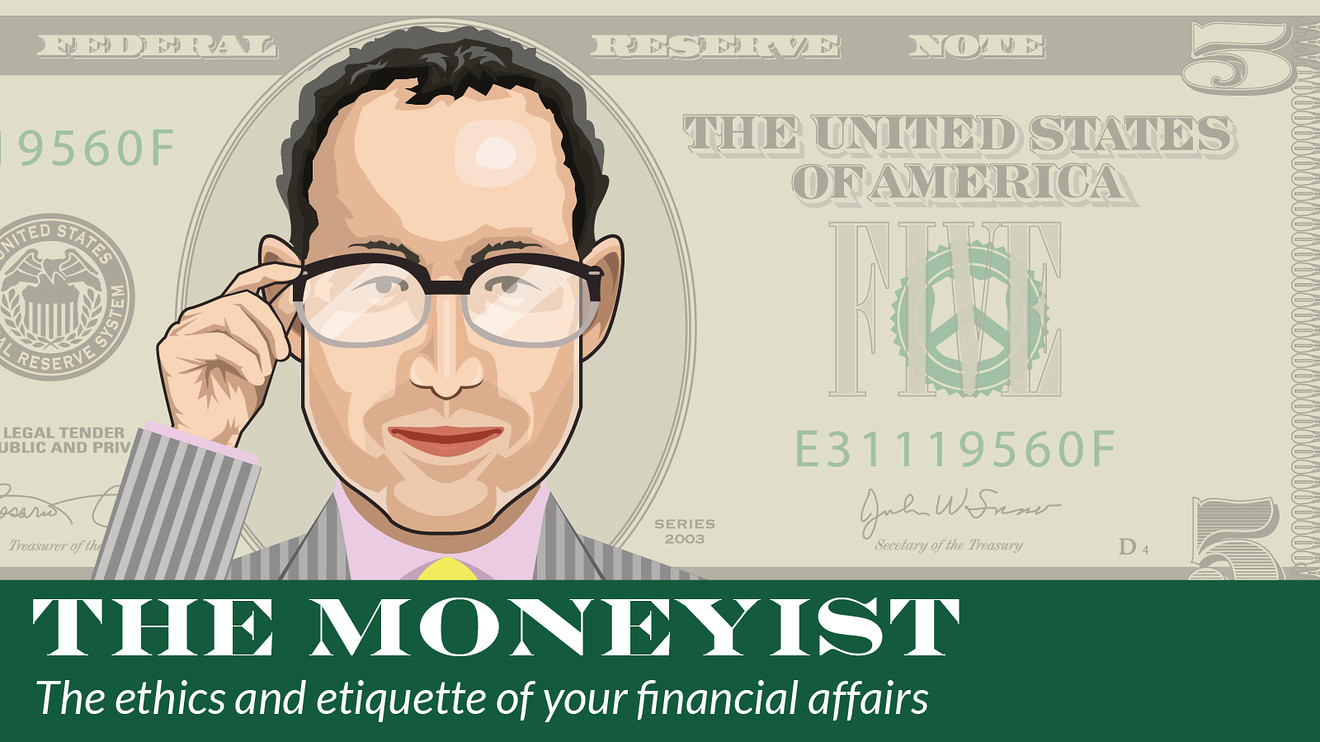
Dear Quentin,
I have a question about the etiquette and ethics surrounding GoFundMe. I had planned a vacation with a very old and close friend this summer. I’d paid the deposit earlier this year, but it was still refundable for another month. This was important to me, as I didn’t know if we would still be on lockdown this summer.
Recently, one of my friend’s animals became ill and needs an expensive procedure. I was expecting a call at any time about canceling or at least postponing the vacation as money is a bit tight. I never got that phone call, instead I got a GoFundMe notice to support the animal’s procedure.
“ I called this friend and suggested we cancel the vacation since they were having to ask for donations. ”
A day or two later, I called this friend and suggested we cancel the vacation since they were having to ask for donations. Instead, the friend had no clue as to why I would even suggest such a thing, and we had a huge blowout because, among other things, they said they deserved the vacation.
I ended up canceling, and just told her to keep my deposit and use it as she saw fit. I felt wrong going on a trip that had been funded indirectly by others.
In my world, one should not resort to GoFundMe until they have exhausted all other reasonable options. If the trip was nonrefundable, I never would have even suggested canceling. I probably would have offered to kick in more than my share, as I feel pretty strongly about taking care of our companion animals.
I’m in my mid-50s and maybe just don’t get the morals and ethics around the crowdfunding sites. Can you address this? I need a rational and relevant viewpoint, especially as this seems to have tanked a decades-old friendship. Thank you.
The Friend
You can email The Moneyist with any financial and ethical questions related to coronavirus at [email protected], and follow Quentin Fottrell on Twitter.
Dear Friend,
You live in your world, and your friend lives in hers.
Crowdfunding is a strange beast. Everyone from Roger Stone to Kanye West asked for donations (West via Twitter TWTR, -0.08%, Stone via GoFundMe). Some are more successful than others. Recently, Kylie Jenner, reportedly a billionaire, shared her makeup artist’s GoFundMe account, asking people to donate to his medical expenses following a car accident. She caught a lot of flack.
Why should the public pay for her makeup artist’s medical expenses when other people face such costs and don’t have famous friends with 230 million followers on Instagram? For that matter, why doesn’t she just pay for the medical expenses herself? But that argument works both ways: Yes, the public is not an ATM machine, but neither is Kylie Jenner.
“ You walked away from the vacation based on this moral judgment, and your friend walked away from your friendship for being judged. ”
The outrage happens because people are asked to contribute. People find it triggering. Such people see GoFundMe pages as virtual panhandling, and they feel their personal boundaries creaking under the pressure of all the emails and Facebook messages asking, “Brother, sister, can you spare a dime?” The beauty of GoFundMe is you don’t have to contribute if you don’t want to.
You could have said or done one of three things: 1. “Sheila has a GoFundMe page to help pay for her cat’s liver problems. That’s nice. Poor Sheila. Poor cat!” 2. “Sheila has a GoFundMe page for Kevin the Cat. Who does she think she is? We all have problems!” Or 3. “If she thinks I’m going on vacation with her while she has strangers pay for her cat, she has another thing coming.”
No. 3 is the trickiest of the three. Not because it’s right or wrong to ask for help paying vet’s bills when she could have used her vacation money or part of it, but because you decided to cancel your vacation with your friend over a resentment, and then volunteer your disapproval of her decision without being asked your opinion on it. You judged her, and then you punished her.
Perhaps she was fearful about her cat’s health and also needed emotional support. A phone call to say, “How’s Kevin doing? I don’t have the money to help you, but if there’s anything more I can do please let me know.” Maybe she needed a holiday. Or just really wanted one. The money was going toward the sick animal. It was not funding her vacation. They are two expenses, not one.
“ A person who knows how to write a poignant story and is photogenic will raise more money than someone who has none of those characteristics. ”
GoFundMe helps a lot of people, and there are also a lot of chancers out there seeking money for nothing. That’s their gig. And when people use it to scam, GoFundMe intervenes and refunds donations. (Remember the New Jersey couple who raised $400,000 to help a homeless man, but they were all in cahoots? That all came crashing down around them.)
A person who knows how to write a poignant story and is photogenic will raise more money — perhaps even more than they need — than someone who has none of those camera-ready characteristics or social-media savvy. It’s not an equal playing field. No one said life was fair. Our challenge is to decide what is right for us, and resist policing other people’s actions.
It reminds me of when former Rep. Jason Chaffetz (R., Uthah) told CNN: “Americans have choices, and they’ve got to make a choice, so rather than getting that new iPhone AAPL, +0.60% that they just love and want to go spend hundreds of dollars on that, maybe they should invest in their own health care.” Your iPhone or your life. Your vacation or your pet’s life. Either/or, or else!
If you canceled your vacation because of this and told her why, you absolutely risked losing the friendship. Call the vacation police! You walked away from the trip based on this moral judgment, and your friend walked away from your friendship for being judged. By doing what you did, you were effectively showing her your teeth, and that is something the vet should have asked of Kevin.
Hello there, MarketWatchers. Check out the Moneyist private Facebook FB, +1.22% group, where we look for answers to life’s thorniest money issues. Readers write in to me with all sorts of dilemmas. Post your questions, tell me what you want to know more about, or weigh in on the latest Moneyist columns.
By submitting your story to Dow Jones & Company, the publisher of MarketWatch, you understand and agree that we may use your story, or versions of it, in all media and platforms, including via third parties.





